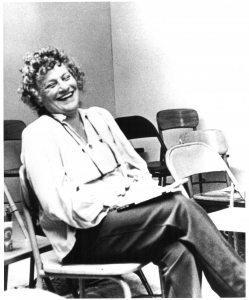Or Debriefing the Debrief
Remember when we played for fun?
I’ve been playing games most of my life. The games we play shape us as people and as a society. In the same way lion cubs and kittens, cavort, pounce and chase around, play equips them for being cats in later life, play makes us who we are.
When I was young, I played games by myself and with other kids. I played with my army men, my plastic dinosaurs, and model trains by myself. It was fun to exercise my imagination. When I played in the neighborhood with other kids, I played Red Rover. “Red Rover, red rover let Green come over!” and anyone wearing green would have to dash to the other side. I played Red Light/Green Light, which to my surprise in a recent Improv workshop of professional game players, they never heard of! https://www.spolingamesonline.org/portfolio-items/red-light-green-light/?portfolioID=5781
I even invented games for my neighborhood friends to play. Fifty five years ago, I remember inventing the game of “Fall Dead” where I had an air rifle that I would plunge into the lawn and grab a plug of dirt to shoot at my friends all running in a circle on the lawn. If you were hit, you would have to do the best death scene ever to win the chance to shoot the rifle. Okay, today it’s paint ball. Fine.
When I played I had fun. Games shaped me. But I have to say, play has changed. At least in organizational terms, games are now seen in a new light. Yes, they still teach us skills but in many ways, how new games are taught and marketed today take some of the fun out of it.
Applied Improv is a new field gaining great ground in the new Concept Age, as Dan Pink might call it. We now know that games are ‘good for us’ and as such can be valuable. So what do many do in Applied Improv? They invent games and play them as medicine to be taken with a debrief on what we are to get out of it; what edge it gives us; what new skills we’ve acquired; insights gained, etc. Gamification is another way to attract an audience to a new product or service. Or we gamify message to make it ‘sticky’ to plant new ideas, etc.
In my mind, we should skip the intellectual exercise that is the debrief and simply play for the fun of it. If it’s a good game, the resulting effect is in us at the moment of playing. The transformation has already happened. Consistent play in this manner will, over time, change you for the better and also change a corporate culture.
Talking about it afterward only serves as a way to remove the fun of it and make it appear more valuable: More marketable. It’s the hook, we as trainers use to hold ourselves up as experts to get the big bucks. (the real goal of the game). The result is what we’re after and if we’re not shown its value then what possible good can come out of just playing around? Debriefing a game makes it less likely to be played again, in my opinion.
The only reason to talk about the game afterwards is if it wasn’t fun. Then we have to examine if the game has a flaw, the rules, the players, the coach, etc. That is valuable.
If it was fun, go onto another game or bask in the afterglow with your fellow players or move on to other things.
I illustrate this point with the song “If You’re Happy and You Know it, Clap Your Hands!”
Please try this at home or at work and as you read this. Sing the song out loud. Right now. And do what the song asks. Ready?
If you’re happy and you know it, clap your hands! (clap, clap)
If you’re happy and you know it, clap your hands! (clap, clap – do it! Come on!)
If you’re happy and you know it, and you really want to show it–
If you’re happy and you know it… Let’s discuss the value of this song right now.
Gary Schwartz began his professional career as a mime at age 13, performing up and down the Hudson River with Pete Seeger and the great folk entertainers of the 1960s. In the 1980s he appeared in numerous film and television projects including the Oscar-winning feature film Quest for Fire. Schwartz has lent his voice to hundreds of film and TV projects and is the voice of several well-known video game characters, including Heavy Weapons Guy and Demoman in Team Fortress 2. Schwartz has written for two children’s television series in which he co-starred: Zoobilee Zoo, where he played Bravo Fox; and the Disney Channel’s You and Me, Kid. Schwartz studied with and became the protégé of Viola Spolin, the creator of Theater Games, the basis for improvisational theater in America. He is a passionate, dynamic improv coach and facilitator devoted to carrying on Spolin’s techniques.
To learn more visit http://gary-schwartz.com
Gary Schwartz is the author of a new book, The King of Average, a middle grade fantasy novel of adventure and self-esteem.

